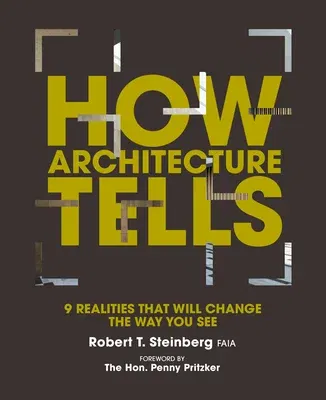The general reading public is likely to think of architecture as
buildings. But, with this book, Robert Steinberg would like to help
readers understand that architecture shapes lives. Architecture can help
communities integrate and thrive. Architecture can touch us, influencing
how we feel, and how we interact with others. In short, architecture can
fundamentally improve our quality of life.
As a young graduate architect fresh from Berkeley, Steinberg began to
discover the potential of architecture to shape communities. Working
with his father, an architect who had studied with Mies van der Rohe
(and whose father was also an architect), one of Steinberg's first
projects was to draft and redraft a parking garage in downtown Silicon
Valley, CA. As he mediated between the two architects in charge of the
project--his father and the city architect--he noticed that with each
evolution, the garage became more beautiful and refined. And with each
improvement, this garage became more able to succeed in the goal of
reviving the dying downtown core of Silicon Valley.
The garage was a huge success, and Steinberg began to codify what he had
learned. Thanks to the garage, he wrote the first of what would become
the 9 Realities of Architecture: Architecture is the Pursuit of
Perfection -- a magnificent take-away from a humble parking garage
project. As Steinberg eventually rose to become CEO of his firm and grew
it into a global practice with six regional offices including Austin and
New York, and a major office in Shanghai, he used his drive for creating
thriving communities to eventually touch the lives of countless people
around the world.

